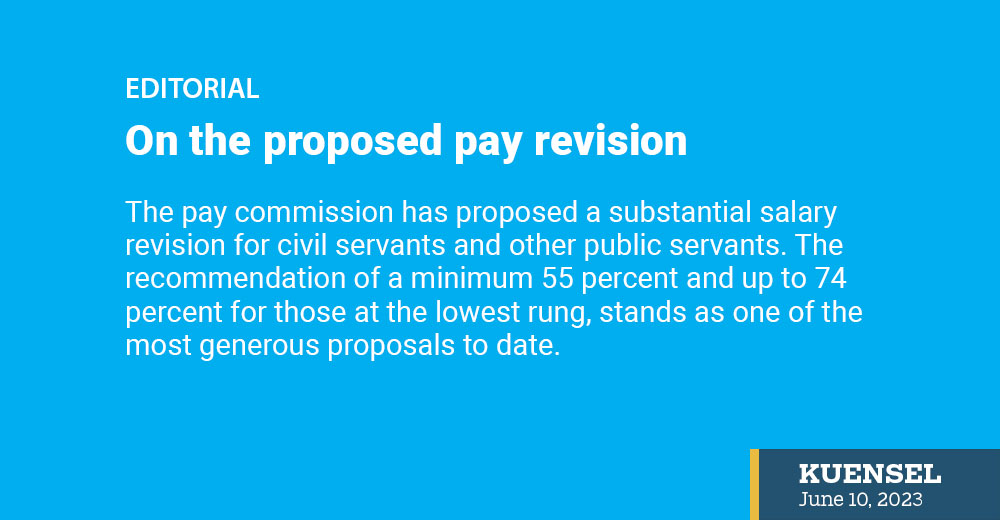The pay commission has proposed a substantial salary revision for civil servants and other public servants. The recommendation of a minimum 55 percent and up to 74 percent for those at the lowest rung, stands as one of the most generous proposals to date.
Amidst the prevailing sentiments and the mood among the public servants, a good pay raise is timely. The purpose of the pay raise, however, is not to make the lives of public servants comfortable. It is, like the pay commission said, to ensure that public servants can maintain a reasonable standard of living with their salaries, and motivate and retain talented people in the public service.
The final revision will depend on the parliament who will deliberate upon the proposal and approve it to come into effect from next month. Today, the attrition rate of public servants is alarmingly high. Will the revision be the catalyst that encourages those contemplating other opportunities to reconsider and change their minds? Only time will tell.
The pay commission has undertaken an exhaustive evaluation to arrive at these recommendations. The parliament’s committee that has a week to study the proposal will not make many changes.
The proposal has taken into account the critical sectors and proposed allowances to retain professionals. A significant change is doing away with the tenure or seniority-based allowance for teachers and increasing the allowance of health professionals. The competency-based initiative does not deprive teachers of earning more.
Judging by the prevailing sentiments, public servants are elated. Even before the parliament endorsed the revision, many are calculating their revised earnings. However, as many are pointing out, a salary revision is the beginning and not the end of the issue.
The first concern, unfortunately, is not the performance of the public servants, but the impact on the cost of goods and housing. The common comment on the revision, cheeky it may be, is not telling landlords and building owners of the revision. The apprehensions stem from the potential escalation of house rents and the overall cost of goods and services.
The concerns are genuine since the revision does not encompass all sectors. What provisions are there for the private sector, as well as those in the public corporations and state-owned enterprises? While the latter group anticipates a matching raise, the private sector is apprehensive. And what about the farmers and those unemployed, who may bear the brunt of rising prices? Should there be one?
The concerns are genuine because past revisions exactly did that. Parallel policies to encourage private sector growth is the need. The private sector too needs professionals to grow. More than professionals, they need a conducive business environment. This they can find in streamlined bureaucracy, affordable loans, technical support and the assurance that they can grow with the right policy decisions.
Meanwhile, the proposal, if passed without any changes, would cost the government Nu 6 billion. It is a lot of money when the economy is not doing well. It is going to contribute to the fiscal deficit that is worked out at 7 percent of the GDP.
The challenge starts after the revision takes effect. The call is on efforts to enhance resources mobilisation, rationalising expenses and cutting costs. What and where are the avenues to increase revenue to fund the revision after the one-off fund from DHI ends?


